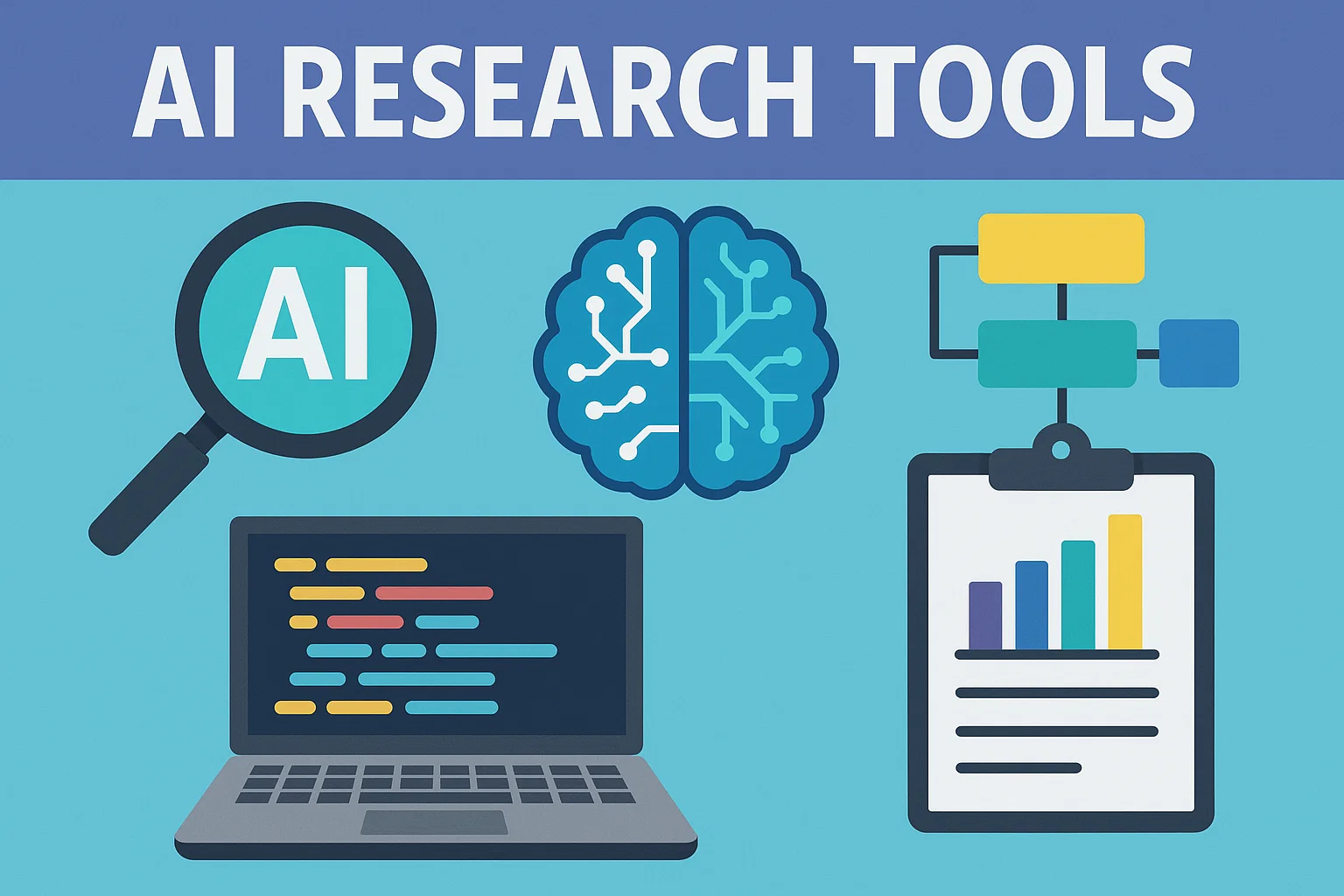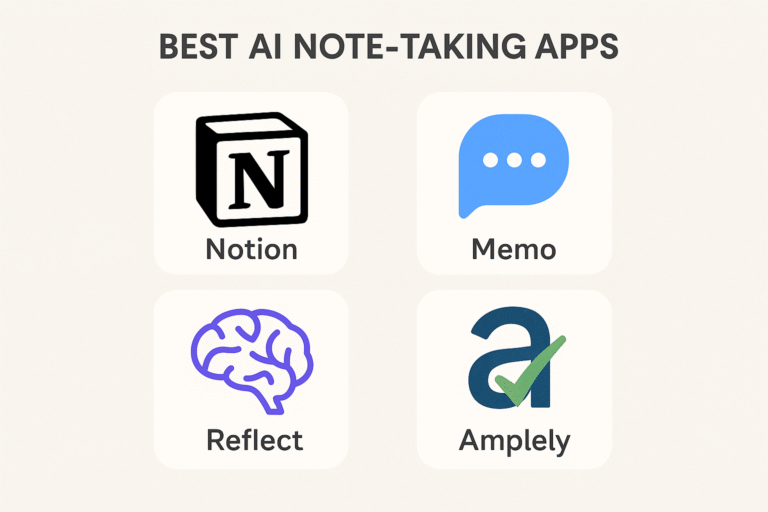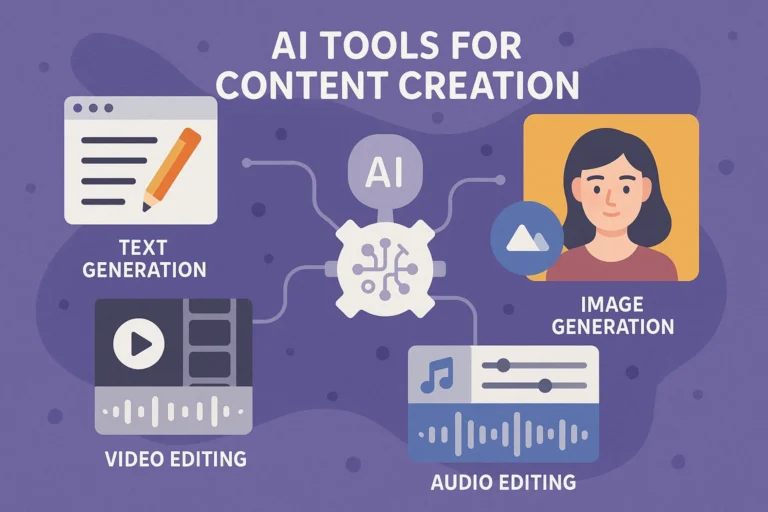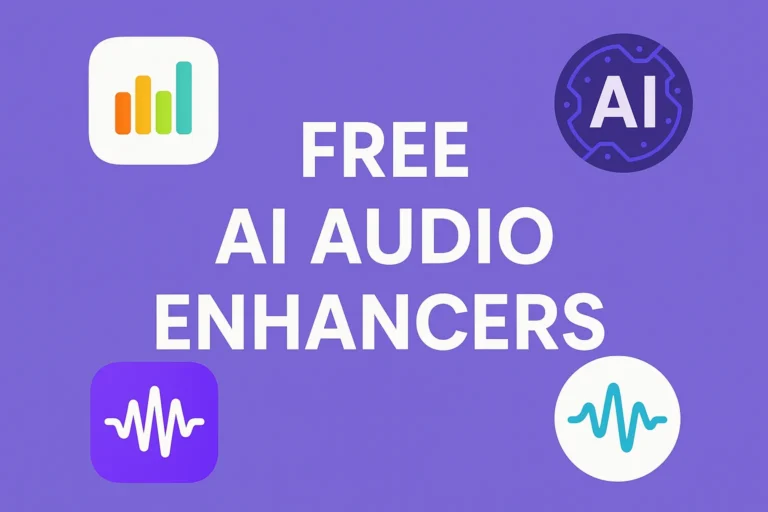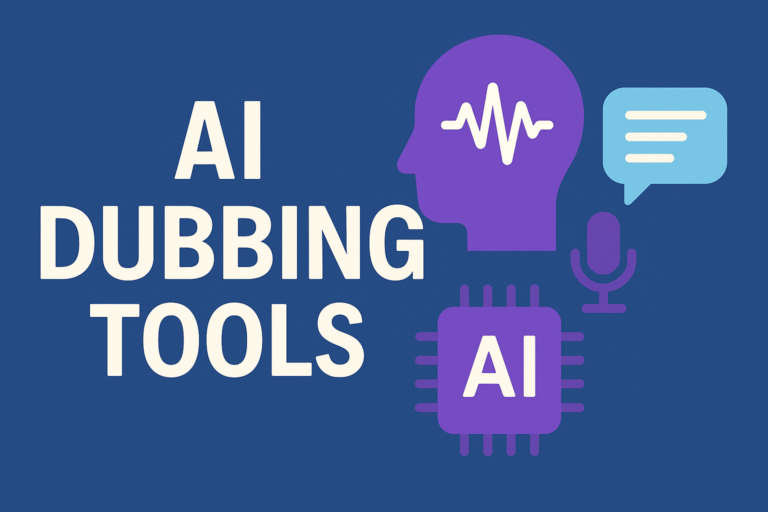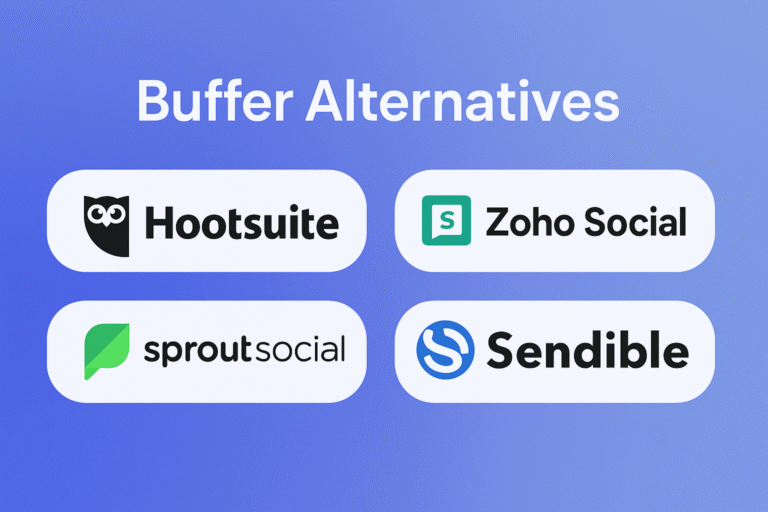Remember spending endless hours clicking through dozens of search results, opening countless tabs, and trying to synthesize information from fragmented sources? Those days are officially over.
In 2025, artificial intelligence has revolutionized how we research, analyze, and discover information. What used to take hours now takes minutes. What used to require expensive research teams can now be accomplished by individuals with the right AI tools.
But here’s what most people don’t realize: the quality of your research directly impacts the success of your digital projects. Whether you’re building high-performing niche websites, developing content strategies, or optimizing existing sites, superior research leads to superior results.
At Upniche, we’ve leveraged advanced AI research tools to help hundreds of clients build profitable websites, optimize their SEO strategies, and dominate their markets. The insights we’ve gained have transformed how we approach everything from keyword research to competitive analysis.
This comprehensive guide will show you exactly which AI tools to use, how to maximize their potential, and most importantly, how to convert research insights into real business growth.
Understanding AI Research Tools: Beyond the Basics
What Makes AI Research Tools Different
Traditional research tools simply retrieve information. AI research tools understand context, synthesize insights, and generate actionable recommendations. They don’t just show you what exists—they help you understand what it means and how to use it.
Key Advantages of AI-Powered Research:
- Contextual Understanding: AI tools understand the relationship between different pieces of information
- Synthesis Capabilities: They combine information from multiple sources into coherent insights
- Pattern Recognition: AI identifies trends and patterns humans might miss
- Scalable Analysis: Process vast amounts of data in minutes rather than hours
- Personalized Insights: Tailor research results to your specific goals and context
The Evolution of AI Research in 2025
This year has brought remarkable advances in AI research capabilities:
- Multi-modal analysis combining text, images, and data
- Real-time web integration for current information
- Advanced reasoning for complex problem-solving
- Collaborative features for team-based research projects
- Industry-specific optimization for specialized research needs
The Ultimate AI Research Tools Arsenal
1. ChatGPT with Advanced Research Features
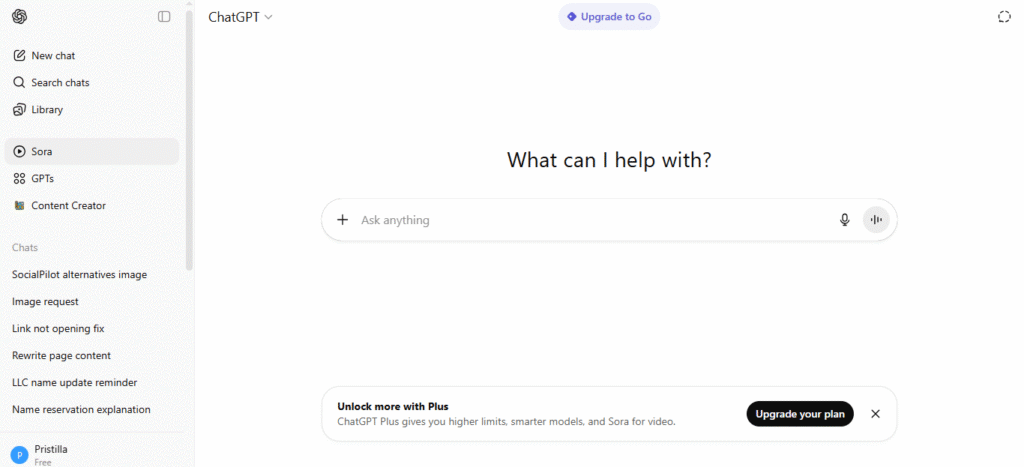
OpenAI’s ChatGPT has evolved into the most comprehensive AI research platform available, with over 400 million weekly active users for good reason.
2025 Research Capabilities:
- Deep Research Mode: Conducts multi-source analysis with automatic citation
- Advanced Data Analysis: Processes complex spreadsheets and datasets
- Code Interpreter: Builds custom analysis tools and visualizations
- Image Analysis: Analyzes charts, graphs, and visual data
- Real-time Web Search: Accesses current information and trending topics
Best Use Cases:
- Comprehensive market research and competitive analysis
- Technical analysis and problem-solving
- Content strategy development and gap analysis
- Data-driven business planning and forecasting
Power User Tips:
- Use Custom Instructions to tailor research output to your industry
- Leverage the Memory feature to build cumulative research knowledge
- Combine multiple modes (Search + Reasoning) for complex projects
2. Google Gemini – The Integrated Intelligence Platform
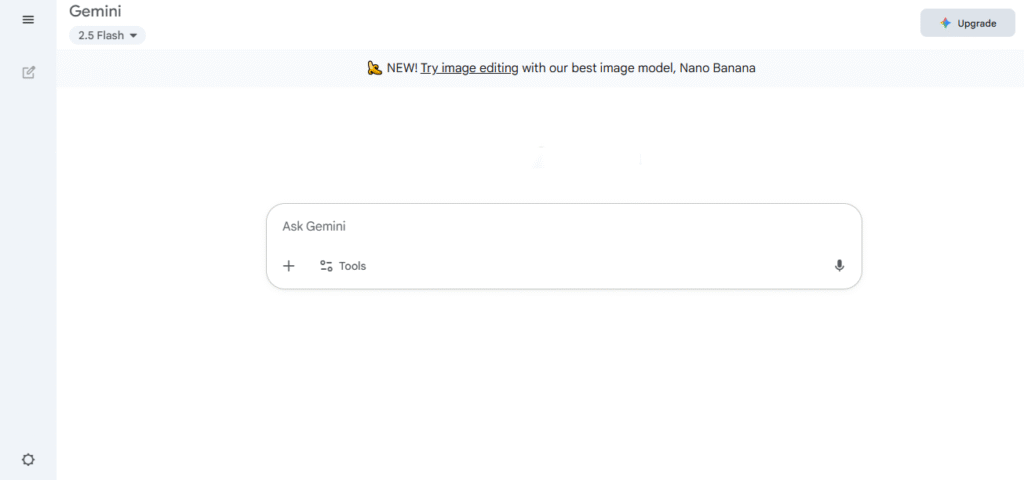
Google’s Gemini offers unique advantages through its deep integration with Google’s ecosystem and real-time data access.
Standout Features:
- Real-time Google Search Integration: Access to the most current information available
- Google Workspace Integration: Seamlessly works with Docs, Sheets, and Drive
- Multi-modal Capabilities: Analyzes text, images, audio, and video content
- Advanced Reasoning: Handles complex logical problems and analysis
- Live Web Access: Always connected to current information
Strategic Applications:
- SEO keyword research with real-time search volume data
- Competitive content analysis using Google’s massive index
- Market trend identification through search pattern analysis
- Technical research leveraging Google’s academic database access
3. Perplexity AI – The Citation-Focused Research Engine
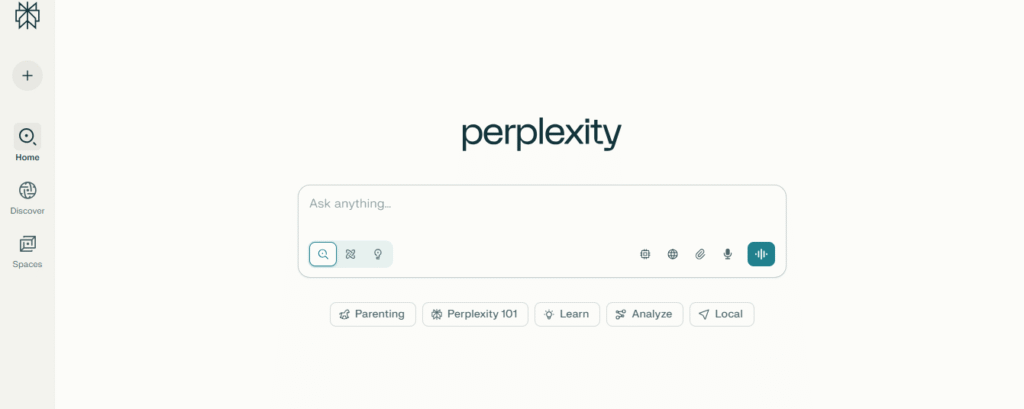
Perplexity has carved out a unique position as the go-to platform for research that requires verified, cited sources.
Research Excellence Features:
- Automatic Source Citation: Every claim includes verifiable sources
- Pro Search Mode: Advanced multi-source analysis and synthesis
- Real-time Information: Access to current news, data, and trends
- Follow-up Suggestions: Intelligent next questions for deeper research
- Visual Search: Analyze images and extract research insights
Why Researchers Love It: Perplexity excels at providing trustworthy, verifiable information—crucial for business decisions and professional research.
4. Microsoft Copilot – The Enterprise Research Assistant
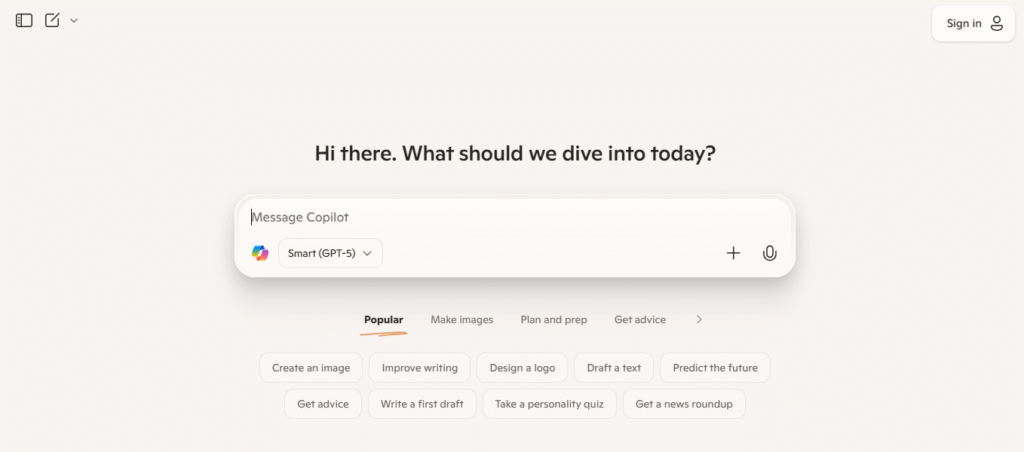
Microsoft’s Copilot offers unique advantages for business research, especially for teams already using Microsoft ecosystem tools.
Business Research Features:
- Microsoft 365 Integration: Seamlessly works with your existing business tools
- Enterprise Security: Meets business-grade security and privacy requirements
- Collaborative Research: Team-based research projects and sharing
- Advanced Data Analysis: Excel integration for sophisticated business analysis
Perfect For:
- Business intelligence and market analysis
- Financial research and planning
- Team-based research projects
- Enterprise-level competitive analysis
5. Claude (Anthropic) – The Analytical Thinking Specialist
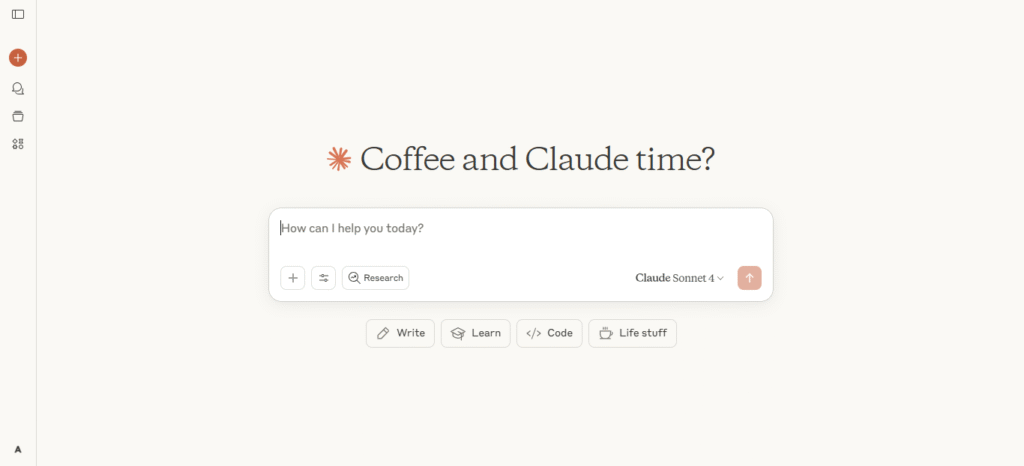
Claude excels at complex analytical thinking and structured problem-solving, making it ideal for sophisticated research projects.
Analytical Strengths:
- Advanced Reasoning: Exceptional logical analysis and problem-solving
- Structured Thinking: Organizes complex information into clear frameworks
- Ethical AI Research: Built-in safeguards for responsible research practices
- Long-form Analysis: Handles extended research projects and comprehensive reports
Best Applications:
- Strategic business planning and analysis
- Complex technical research and problem-solving
- Ethical and legal research considerations
- Academic and scholarly research projects
6. Grok (xAI) – The Real-time Social Intelligence Tool
Grok’s integration with X (Twitter) provides unique real-time social and cultural intelligence.
Unique Capabilities:
- Real-time Social Data: Access to current conversations and trends
- Cultural Intelligence: Understanding of current events and social context
- Contrarian Analysis: Questions assumptions and provides alternative perspectives
- Humor and Creativity: Engaging presentation of research findings
Strategic Value: Particularly valuable for understanding current market sentiment, social trends, and real-time public opinion.
7. You.com – The Search-Integrated AI Research Platform

You.com combines traditional search with advanced AI analysis, offering a unique hybrid approach.
Hybrid Research Features:
- Search + AI Analysis: Combines web search results with AI synthesis
- App Integration: Works with popular productivity and research tools
- Custom AI Modes: Specialized research modes for different industries
- Privacy Focus: Enhanced privacy protection for sensitive research
8. Bing Chat (Microsoft) – The Web-Integrated Assistant
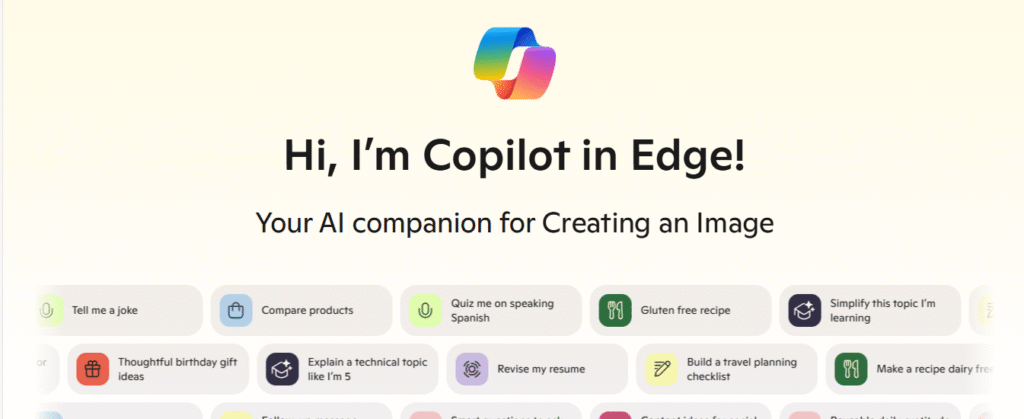
Microsoft’s Bing Chat offers reliable research capabilities with strong web integration.
Research Advantages:
- Current Web Information: Always connected to fresh web data
- Image Generation: Create visuals to support research findings
- Balanced Responses: Presents multiple perspectives on research topics
- Shopping Integration: Excellent for product research and comparisons
9. Anthropic’s Claude 3.5 Sonnet – The Analysis Specialist
The latest version of Claude offers enhanced analytical capabilities perfect for business research.
Advanced Features:
- Complex Data Analysis: Handles sophisticated analytical tasks
- Multi-step Reasoning: Breaks down complex research problems systematically
- Ethical Considerations: Built-in awareness of research ethics and bias
- Academic Quality: Produces research-grade analysis and insights
10. Consensus – The Academic Research AI
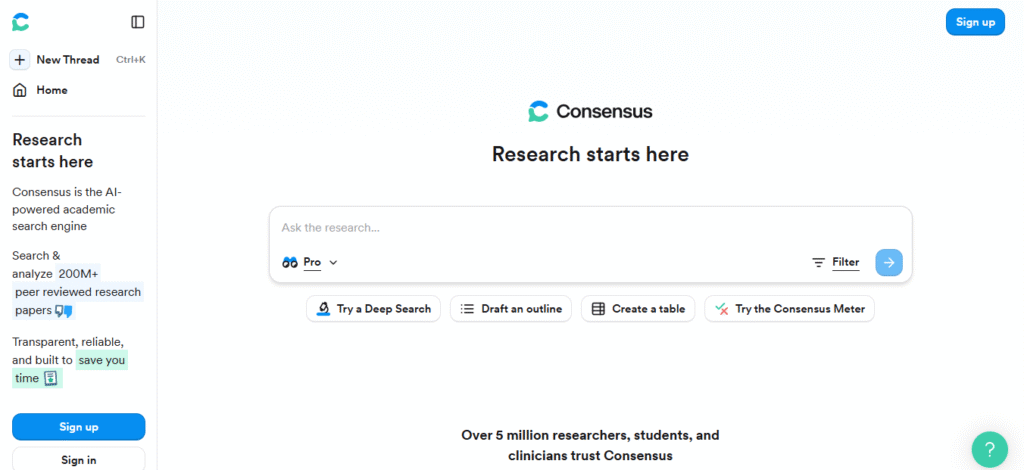
Specifically designed for academic and scientific research, Consensus searches through peer-reviewed papers and scientific literature.
Academic Excellence:
- Peer-reviewed Source Focus: Only uses academic and scientific sources
- Citation Quality: Provides proper academic citations
- Research Summary: Synthesizes findings from multiple studies
- Bias Detection: Identifies potential bias in research sources
11. Research Rabbit – The Literature Discovery Platform
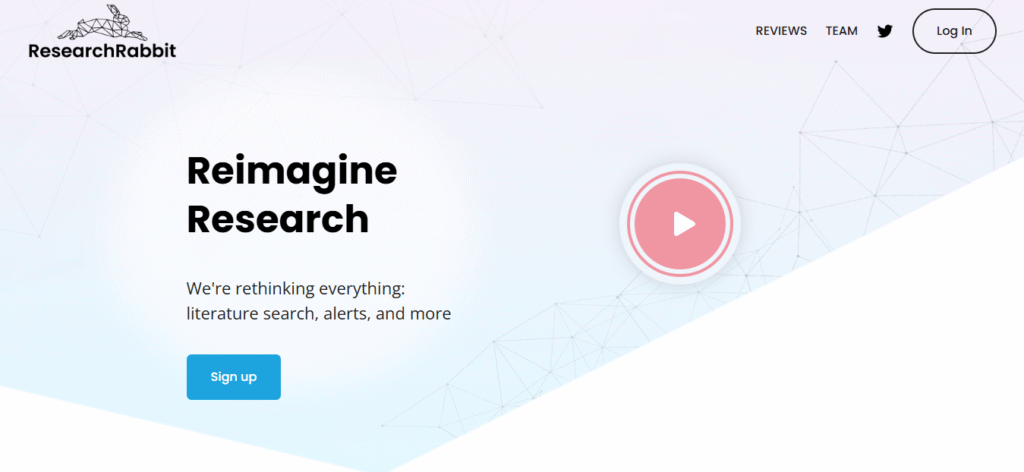
Research Rabbit uses AI to help discover relevant academic literature and research papers.
Discovery Features:
- Paper Recommendation: Suggests relevant research based on your interests
- Visual Knowledge Maps: Shows relationships between research topics
- Collaboration Tools: Share research collections with team members
- Alert System: Notifications when new relevant research is published
12. Elicit – The Scientific Research Assistant
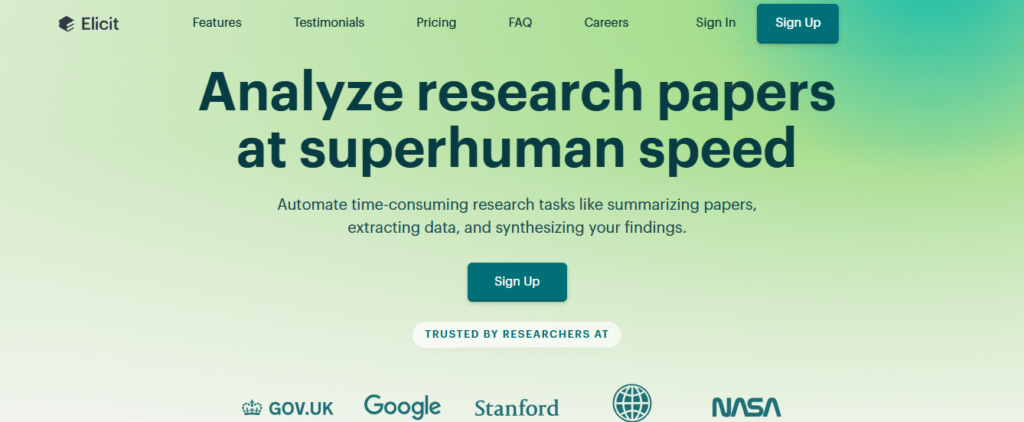
Elicit specializes in helping researchers find and analyze scientific papers using AI.
Scientific Capabilities:
- Paper Analysis: Extracts key findings from research papers
- Systematic Reviews: Helps conduct comprehensive literature reviews
- Data Extraction: Pulls specific data points from multiple studies
- Research Question Generation: Suggests important research questions
13. Semantic Scholar – The AI-Powered Academic Search
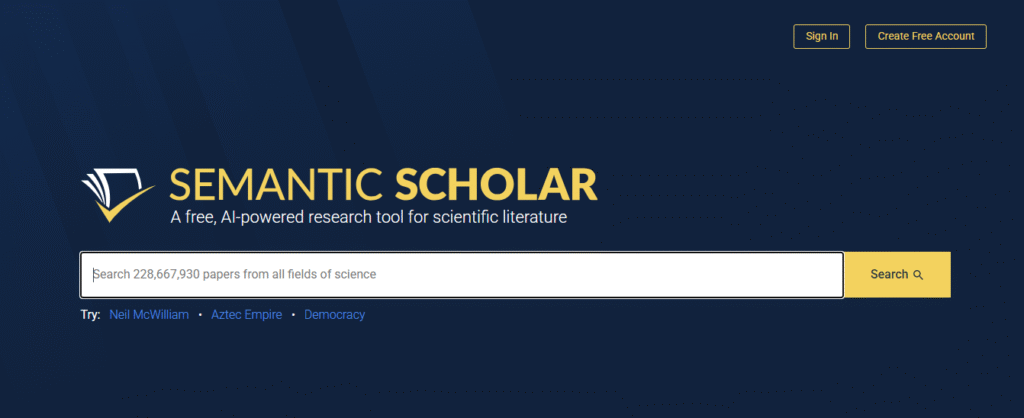
Created by the Allen Institute for AI, Semantic Scholar offers intelligent academic research capabilities.
Academic Intelligence:
- Semantic Search: Understands the meaning behind research queries
- Paper Summaries: AI-generated summaries of research papers
- Citation Analysis: Tracks how research builds upon previous work
- Impact Metrics: Identifies the most influential research in any field
14. Scite – The Citation Analysis Platform
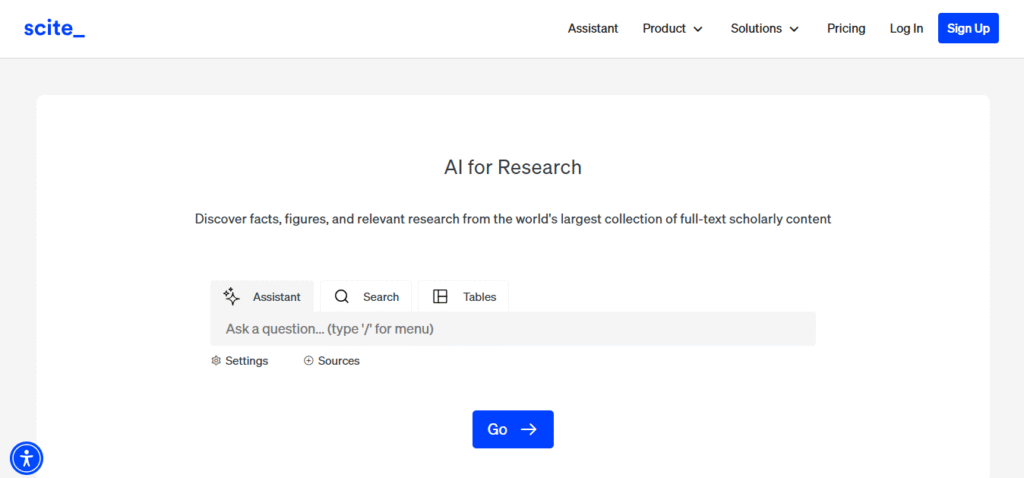
Scite uses AI to analyze how research papers cite each other, providing deeper insight into scientific consensus.
Citation Intelligence:
- Smart Citations: Shows how papers support or contradict each other
- Research Reliability: Identifies well-supported vs. disputed findings
- Trend Analysis: Tracks how scientific understanding evolves over time
- Expert Identification: Finds leading researchers in any field
15. Iris.ai – The Science Research Assistant
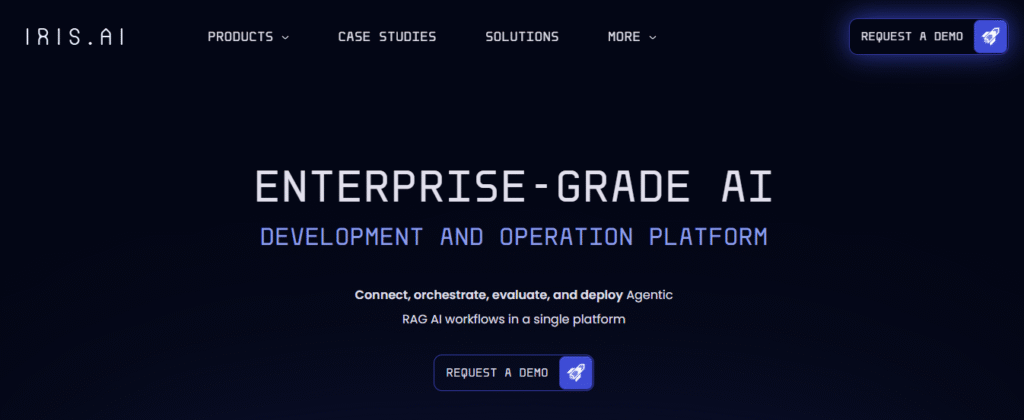
Iris.ai focuses on helping researchers navigate the vast landscape of scientific literature more effectively.
Research Navigation:
- Literature Mapping: Visualizes connections between research topics
- Duplicate Detection: Identifies redundant or similar research
- Gap Analysis: Suggests areas where more research is needed
- Trend Prediction: Identifies emerging research directions
16. Connected Papers – The Research Network Visualizer
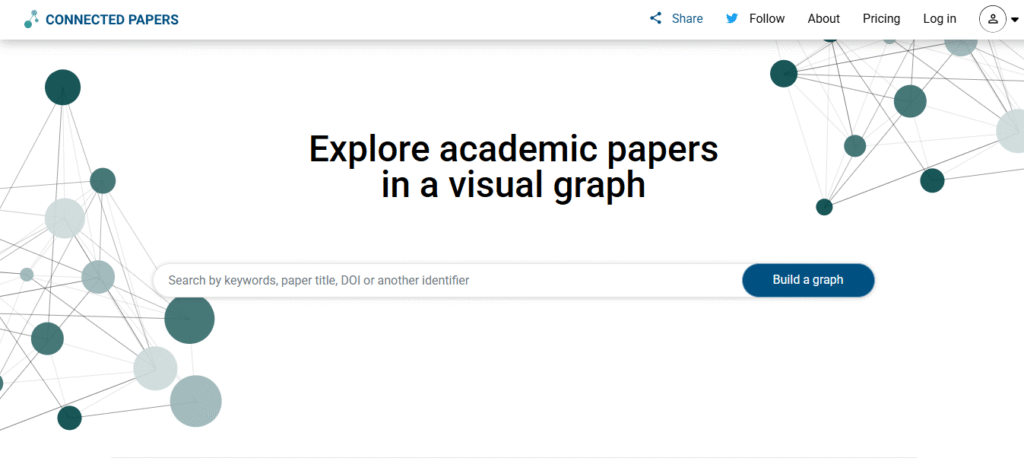
Connected Papers creates visual maps showing how research papers relate to each other.
Network Intelligence:
- Visual Research Maps: Shows how ideas connect across papers
- Prior and Derived Work: Identifies foundational and follow-up research
- Research Timeline: Tracks how ideas develop over time
- Collaboration Networks: Reveals research communities and partnerships
17. Scholarcy – The Research Summarization Specialist
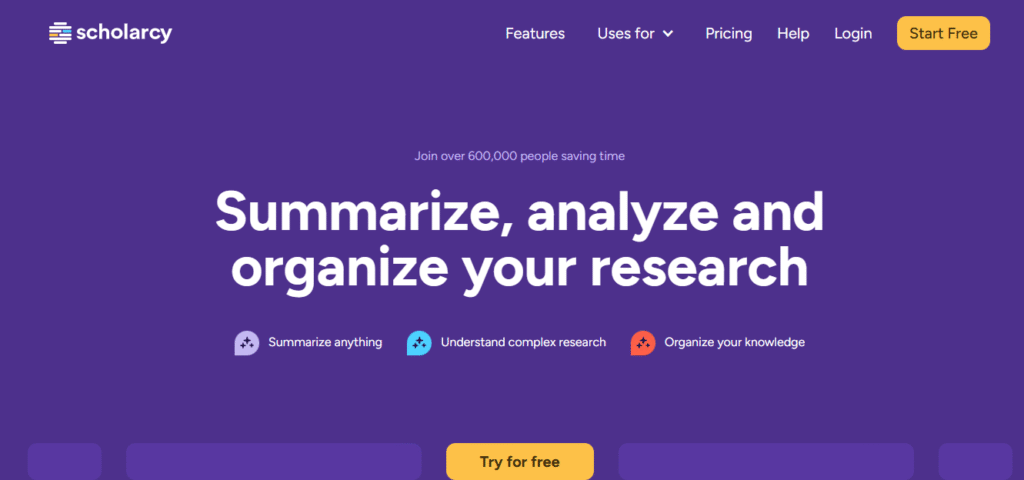
Scholarcy uses AI to create intelligent summaries of research papers and academic content.
Summarization Excellence:
- Key Finding Extraction: Pulls out the most important insights
- Methodology Analysis: Understands and explains research methods
- Critical Analysis: Identifies strengths and limitations of research
- Comparative Studies: Compares findings across multiple papers
18. OpenRead – The Academic Research Platform
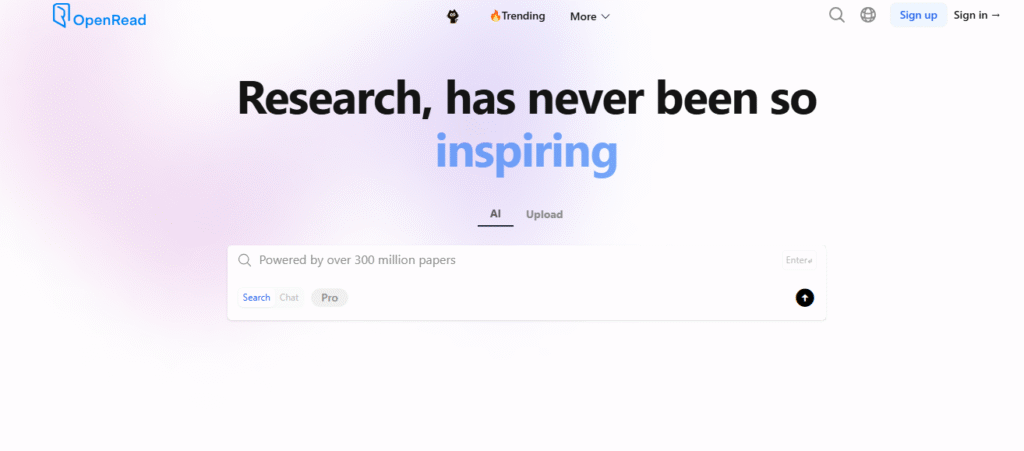
OpenRead combines multiple AI capabilities into a comprehensive academic research platform.
Integrated Capabilities:
- Paper Discovery: Finds relevant research across multiple databases
- Note-taking AI: Helps organize and synthesize research findings
- Question Answering: Provides specific answers from research literature
- Research Writing: Assists with academic writing and citation
19. SciSpace (formerly Typeset) – The Research Comprehension Tool
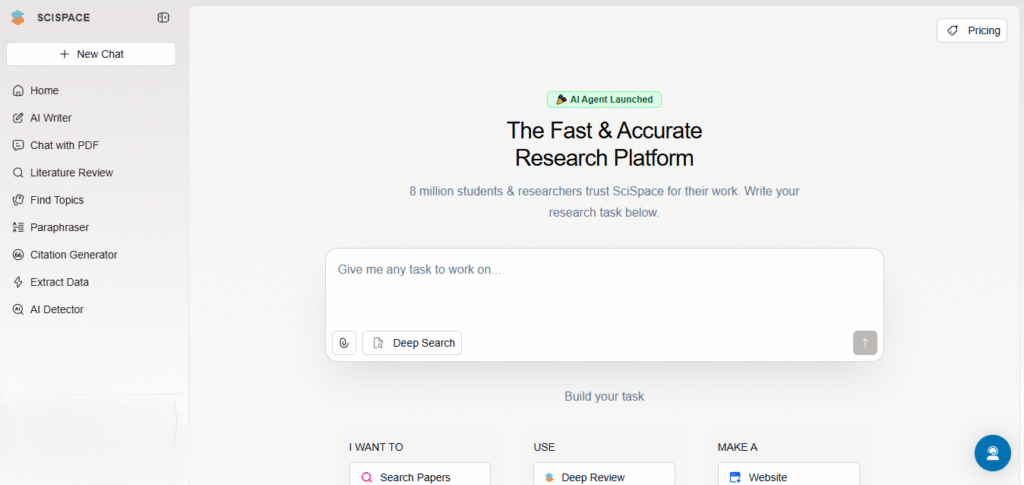
SciSpace helps researchers understand complex academic papers through AI-powered explanations.
Comprehension Features:
- Paper Explanation: Breaks down complex research into understandable language
- Mathematical Analysis: Explains complex equations and statistical methods
- Figure Interpretation: Analyzes charts, graphs, and scientific illustrations
- Concept Mapping: Shows how different concepts relate within research
20. ResearchGate AI Features – The Social Research Platform
While primarily a social network for researchers, ResearchGate has integrated AI features for research discovery.
Social Intelligence:
- Researcher Recommendations: Suggests relevant researchers to follow
- Paper Recommendations: AI-curated suggestions based on your interests
- Question Answering: Community-powered research assistance
- Collaboration Matching: Finds potential research collaborators
Choosing the Right AI Research Tool for Your Needs
Business Research and Market Analysis
For entrepreneurs and business owners: Primary Tools: ChatGPT Deep Research + Google Gemini + Perplexity
Why: These tools excel at market analysis, competitive research, and business planning with real-time data integration.
Content Creation and SEO Research
For content creators and SEO professionals: Primary Tools: ChatGPT + Perplexity + Google Gemini
Why: Perfect combination for keyword research, content gap analysis, and competitive content strategy development.
This approach has been instrumental in Upniche’s success with content-driven affiliate sites and SEO-optimized business websites.
Academic and Scientific Research
For researchers and students: Primary Tools: Consensus + Semantic Scholar + Elicit + ChatGPT
Why: Combines peer-reviewed source access with advanced analysis capabilities for rigorous academic work.
Product Development and Innovation
For product managers and innovators: Primary Tools: ChatGPT + Claude + Perplexity + You.com
Why: Excellent for market research, user needs analysis, and competitive product intelligence.
Financial and Investment Research
For investors and financial analysts: Primary Tools: ChatGPT Deep Research + Microsoft Copilot + Perplexity
Why: Strong analytical capabilities with real-time market data and financial analysis features.
Advanced AI Research Strategies
The Multi-Tool Research Framework
Layer 1: Broad Discovery (Gemini + Perplexity) Start with broad topic exploration to understand the research landscape and identify key themes.
Layer 2: Deep Analysis (ChatGPT Deep Research + Claude) Conduct detailed analysis of specific findings, generate insights, and identify patterns.
Layer 3: Verification and Synthesis (Multiple Tools) Cross-reference findings across tools to ensure accuracy and develop comprehensive conclusions.
The OSCAR Research Method
O – Objective Definition Clearly define your research goals before beginning. What specific questions need answers? What decisions will this research inform?
S – Source Diversification Use multiple AI tools to ensure comprehensive coverage and avoid single-source bias.
C – Critical Analysis Apply critical thinking to AI-generated insights. Question assumptions and verify important claims.
A – Actionable Synthesis Convert research findings into specific, actionable recommendations and strategies.
R – Regular Review Establish systems for updating and refreshing research as markets and information evolve.
Advanced Prompt Engineering for Research
The Research Query Framework:
Context: [Your industry/situation]
Objective: [Specific research goal]
Scope: [What to include/exclude]
Format: [How you want results presented]
Timeline: [Urgency and time constraints]
Sources: [Preferred types of sources]
Example Advanced Research Prompt: “As an e-commerce business owner in the sustainable products niche, I need to research emerging market opportunities in eco-friendly home goods. Please provide a comprehensive analysis including market size data, consumer trend insights, key competitors, pricing strategies, and specific product categories showing growth. Present findings in a strategic report format with data visualization recommendations. Focus on data from the past 12 months and include both B2C and B2B opportunities.”
Converting Research into Business Results
Research-Driven Website Development
Competitive Intelligence for Site Building: When developing new websites or optimizing existing ones, AI research tools provide crucial intelligence:
Market Opportunity Analysis:
- Identify underserved niches with profit potential
- Understand successful content strategies in your target market
- Analyze technical requirements for competitive advantage
- Discover monetization strategies that work in your industry
This intelligence directly informs our approach to custom niche site development, ensuring every site we build targets proven opportunities with minimal competition.
Technical Optimization Research:
- Study competitor site performance and technical implementations
- Identify emerging web technologies and optimization opportunities
- Research user experience trends and best practices
- Analyze mobile optimization and Core Web Vitals strategies
Content Strategy Development
AI-Powered Content Intelligence:
- Topic Discovery: Find content themes your audience craves but competitors miss
- Content Gap Analysis: Identify comprehensive topics lacking quality coverage
- Trend Prediction: Anticipate content topics before they become saturated
- Format Innovation: Discover content formats that resonate with your audience
Implementation Strategy: Use AI research to create content calendars that systematically target opportunities competitors haven’t discovered. This approach has helped Upniche clients achieve first-page rankings for competitive keywords within months rather than years.
SEO and Keyword Research Enhancement
Beyond Traditional Keyword Tools: AI research tools provide insights that traditional SEO tools miss:
Semantic Keyword Discovery:
- Understand user intent behind keyword searches
- Identify related topics and subtopics for comprehensive coverage
- Discover long-tail opportunities with commercial potential
- Analyze competitor content strategies for keyword clusters
Content-First SEO Strategy: Rather than starting with keywords, start with thorough topic research to understand what your audience truly needs, then optimize for relevant search terms.
Industry-Specific AI Research Applications
E-commerce and Product Research
Product Opportunity Analysis: AI tools excel at identifying profitable product opportunities through comprehensive market analysis.
Research Applications:
- Trend Analysis: Identify emerging product categories before they become saturated
- Competitive Pricing: Understand pricing strategies and market positioning
- Customer Pain Points: Discover unmet needs in existing product categories
- Seasonal Opportunities: Predict seasonal demand patterns and preparation strategies
Implementation for E-commerce Success: Use AI research to inform e-commerce website development decisions, ensuring your store targets proven opportunities with optimized user experiences.
Affiliate Marketing and Niche Sites
Profitable Niche Discovery: AI research tools revolutionize how affiliate marketers identify and validate profitable opportunities.
Strategic Research Areas:
- Commission Rate Analysis: Compare affiliate program payouts across industries
- Content Competition: Analyze ranking difficulty for commercial keywords
- Buyer Intent Research: Understand customer journey and decision factors
- Seasonal Monetization: Identify seasonal affiliate opportunities and timing
Real-World Application: This research approach has enabled Upniche to develop high-converting affiliate sites that consistently outperform market averages because they target validated opportunities with proven demand.
SaaS and Technology Research
Market Intelligence for Tech Companies:
- Feature Gap Analysis: Identify functionality gaps in existing solutions
- Pricing Strategy Research: Understand pricing models and optimization opportunities
- Customer Success Patterns: Analyze what drives retention and growth
- Integration Opportunities: Discover partnership and integration possibilities
Service-Based Business Research
Client Acquisition Intelligence:
- Pain Point Research: Understand specific challenges your target clients face
- Competitive Service Analysis: Analyze competitor service offerings and pricing
- Channel Effectiveness: Research which marketing channels work best for client acquisition
- Trust Building Research: Understand what builds credibility in your industry
This research informs our small business website development approach, ensuring every site we create addresses real market needs and competitive advantages.
Building Your AI Research Workflow
The Daily Intelligence System
Morning Market Scan (15 minutes):
- Use Google Gemini for industry news and trend updates
- Check Perplexity for specific market developments
- Review overnight competitor activities and announcements
Weekly Deep Dive (2 hours):
- Conduct comprehensive competitive analysis using ChatGPT Deep Research
- Analyze market trends and opportunities using multiple AI tools
- Synthesize findings into actionable strategy updates
Monthly Strategic Review (4 hours):
- Comprehensive market position analysis
- Strategic planning based on accumulated research insights
- Research workflow optimization and tool evaluation
Creating Your Research Knowledge Base
Systematic Information Management:
- Research Documentation: Maintain detailed records of research findings and sources
- Insight Synthesis: Regularly compile insights into strategic documents
- Trend Tracking: Monitor how your research predictions pan out over time
- Knowledge Sharing: Create systems for sharing research insights across your team
Tool Integration Strategy: Rather than using tools in isolation, create workflows that leverage the strengths of multiple platforms:
- Discovery Phase: Use Gemini and Perplexity for broad market intelligence
- Analysis Phase: Apply ChatGPT and Claude for deep analytical work
- Verification Phase: Cross-reference findings across multiple tools
- Implementation Phase: Convert insights into specific action plans
Advanced Research Techniques
Competitive Intelligence Amplification
AI-Enhanced Competitor Analysis: Traditional competitor analysis looks at what competitors are doing. AI-enhanced analysis predicts what they’re likely to do next.
Predictive Research Methods:
- Pattern Recognition: Identify cyclical behaviors and strategic patterns
- Scenario Planning: Use AI to model different competitive scenarios
- Weak Signal Detection: Identify early indicators of strategic changes
- Response Strategy Development: Plan responses to predicted competitor moves
Market Opportunity Scoring
AI-Driven Opportunity Assessment: Create systematic approaches to evaluating market opportunities using AI analysis:
Opportunity Evaluation Framework:
- Market Size Analysis: Use AI to estimate total addressable market
- Competition Assessment: Analyze competitive landscape and barriers to entry
- Technical Feasibility: Assess technical requirements and implementation complexity
- Resource Requirements: Estimate time, budget, and skill requirements
- Risk Assessment: Identify potential challenges and mitigation strategies
Trend Forecasting and Prediction
AI-Powered Market Prediction:
- Data Pattern Analysis: Identify emerging trends before they become obvious
- Cross-Industry Intelligence: Spot trends moving between industries
- Technology Adoption Cycles: Predict when new technologies will reach mainstream adoption
- Consumer Behavior Evolution: Understand how customer preferences are changing
Maximizing ROI from AI Research Tools
Cost-Benefit Analysis
Free vs. Paid Tool Strategy: Most AI research tools offer substantial free capabilities. Here’s how to maximize free tool value:
Free Tool Maximization:
- Rotate Usage: Use multiple free tools to extend daily limits
- Strategic Timing: Plan research sessions around tool refresh cycles
- Community Resources: Leverage user communities for tips and strategies
- Integration Efficiency: Combine tools to achieve premium-like capabilities
When to Upgrade:
- Volume Requirements: Need for extensive daily research
- Advanced Features: Requirement for specialized analysis capabilities
- Team Collaboration: Multiple users needing simultaneous access
- Integration Needs: Advanced workflow automation and tool integration
Measuring Research Impact
Track These Success Metrics:
- Decision Speed: How much faster you make informed decisions
- Accuracy Improvement: Better outcomes from research-driven decisions
- Opportunity Discovery: New opportunities identified through AI research
- Competitive Advantage: Market position improvements from better intelligence
Research Process Optimization
Continuous Improvement Framework:
- Tool Performance Tracking: Monitor which tools provide the best insights for different research types
- Query Optimization: Refine research prompts and questions for better results
- Workflow Efficiency: Streamline research processes to maximize productivity
- Knowledge Management: Improve how you capture, organize, and apply research insights
Common AI Research Mistakes to Avoid
1. Over-Reliance on Single Tools
Different AI tools have different strengths. Using only one tool limits your research quality and introduces bias.
2. Insufficient Verification
Always cross-reference important findings across multiple sources. AI tools can occasionally provide outdated or incorrect information.
3. Ignoring Context and Nuance
AI tools excel at pattern recognition but may miss subtle context that’s crucial for business decisions.
4. Research Without Action
The most comprehensive research is worthless without implementation. Always connect research findings to specific action plans.
5. Neglecting Source Quality
Not all AI-generated insights are equally reliable. Pay attention to source quality and citation strength.
Building Your AI Research Expertise
Developing Advanced Research Skills
Essential Capabilities to Build:
- Prompt Engineering: Craft research queries that generate superior insights
- Critical Analysis: Evaluate AI-generated research for quality and reliability
- Synthesis Skills: Combine insights from multiple tools into coherent strategies
- Implementation Planning: Convert research insights into actionable business plans
Staying Current with AI Research Evolution
Keep Up with Developments:
- Tool Updates: AI research tools evolve rapidly—stay informed about new features
- Best Practices: Research communities share evolving best practices and techniques
- Integration Opportunities: New tool integrations and workflow possibilities emerge regularly
- Industry Applications: Different industries develop specialized research approaches
Future-Proofing Your Research Strategy
Preparing for AI Research Evolution
Emerging Capabilities to Watch:
- Multi-Agent Research: AI tools working together on complex research projects
- Real-Time Collaboration: Enhanced team-based research capabilities
- Predictive Intelligence: AI tools that predict future trends and opportunities
- Automated Implementation: Research tools that can automatically implement findings
Building Sustainable Research Advantages
Long-Term Strategy Development:
- Knowledge Accumulation: Build systematic knowledge bases that compound over time
- Relationship Building: Develop networks that enhance research capabilities
- Skill Development: Continuously improve research and analysis skills
- Technology Adoption: Stay current with emerging research technologies and methodologies
Taking Action: Your 30-Day AI Research Transformation
Week 1: Foundation Building
- Set up accounts for 5-7 tools that match your research needs
- Define research objectives for your current projects
- Create research templates for consistent, quality output
- Establish success metrics for measuring research impact
Week 2: Skill Development
- Practice advanced prompting techniques with different tools
- Experiment with multi-tool workflows for comprehensive research
- Develop verification processes for ensuring research accuracy
- Create knowledge management systems for organizing insights
Week 3: Implementation and Integration
- Apply research insights to current projects and decisions
- Integrate AI research into your regular business processes
- Measure initial results and refine your approaches
- Share knowledge with team members and stakeholders
Week 4: Optimization and Scaling
- Analyze research ROI and optimize tool selection
- Scale successful processes across more business areas
- Plan advanced research projects using your new capabilities
- Develop long-term research strategy and goals
Conclusion: Your Research Revolution Starts Today
The AI research revolution isn’t coming—it’s here. In 2025, businesses and individuals who master AI-powered research will have unprecedented advantages over those still using traditional methods.
Whether you’re building profitable niche websites, developing comprehensive business solutions, or optimizing existing digital properties, superior research capabilities directly translate to superior results.
The tools and strategies outlined in this guide provide everything you need to transform your research process from time-consuming drudgery into a strategic advantage that drives real business growth.
Start with 2-3 tools that match your immediate needs. Experiment with advanced techniques. Most importantly, systematically apply your research insights to real projects and decisions.
Your competitors are already using these tools. The question isn’t whether you should adopt AI research—it’s how quickly you can master these capabilities to build lasting competitive advantages.
The future belongs to those who can research smarter, faster, and more strategically. Your research revolution starts now.
Frequently Asked Questions
Which AI research tool is best for beginners just getting started?
For beginners, start with ChatGPT and Google Gemini. Both offer intuitive interfaces, comprehensive free tiers, and excellent documentation. ChatGPT excels at structured analysis, while Gemini provides real-time web integration. Once comfortable with these, expand to Perplexity for citation-heavy research.
Can AI research tools replace traditional research methods entirely?
AI tools dramatically enhance research efficiency and capabilities, but they work best when combined with human critical thinking and domain expertise. Use AI for rapid information gathering and initial analysis, but always apply your own judgment and verify important findings through multiple sources.
How accurate is the information provided by AI research tools?
Accuracy varies by tool and information type. Tools with real-time web access (like Gemini and Perplexity) provide current information, while others may have knowledge cutoffs. Always verify critical business decisions through multiple sources and cross-reference important findings across different tools.
What’s the biggest mistake people make when using AI for research?
The most common mistake is accepting AI-generated insights without critical evaluation. AI tools are powerful but not infallible. Always question findings, verify important claims, and apply your own domain expertise to interpret results in the context of your specific situation.
How can I ensure my AI research is giving me a competitive advantage?
Focus on asking better questions rather than just using more tools. Develop research frameworks that systematically uncover opportunities competitors miss. Combine insights from multiple tools, and most importantly, act quickly on validated opportunities before they become obvious to everyone.
Should I use free versions or upgrade to paid plans for AI research tools?
Start with free versions to understand which tools best match your research style and needs. Upgrade to paid plans when you hit usage limits that constrain your research, need advanced features for complex projects, or require team collaboration capabilities. Most users can accomplish significant research using free tiers across multiple platforms.
How do I organize and manage insights from multiple AI research tools?
Create a centralized research knowledge base using tools like Notion or Google Docs. Develop templates for different research types, maintain source citations, and regularly synthesize findings into strategic documents. Consider using AI tools themselves to help organize and summarize your accumulated research insights.
What’s the best way to stay updated on new AI research tools and capabilities?
Follow AI research communities on platforms like Reddit and Discord, subscribe to AI newsletters and blogs, and regularly test new tools as they emerge. Set up Google Alerts for terms like “AI research tools” and “research automation” to stay informed about new developments and capabilities.

